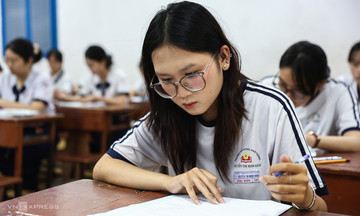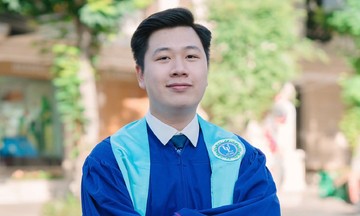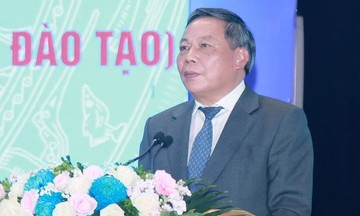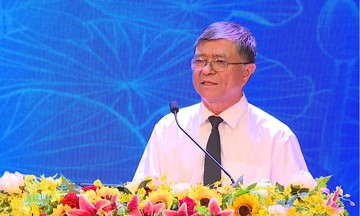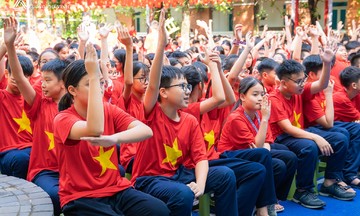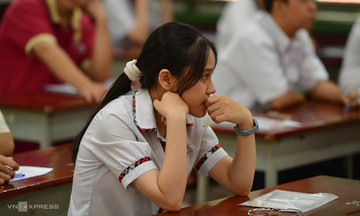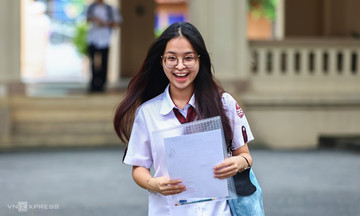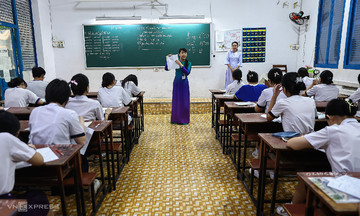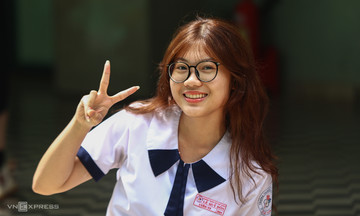The Ministry of Education and Training announced the news on the morning of 14/7. The gold medalists are:
1. Ngo Quang Minh (12th grade, Bac Ninh Specialized High School), ranked 7th.
2. Nguyen Hoang Khoi (12th grade, High School for Gifted Students, Hanoi National University of Education), ranked 10th.
3. Giang Duc Dung (12th grade, High School for Gifted Students in Natural Sciences, Hanoi National University of Education), ranked 14th.
4. Nguyen Manh Tuan (11th grade, Hanoi - Amsterdam High School for Gifted Students), ranked 37th.
The Ministry stated that Vietnam tied with China and the US for the number of gold medals. This is the third time since 1996 that the entire Vietnamese team has won gold medals at the IChO. The previous two times (2020 and 2022), the competition was held online due to Covid-19, while this year it was held in person.
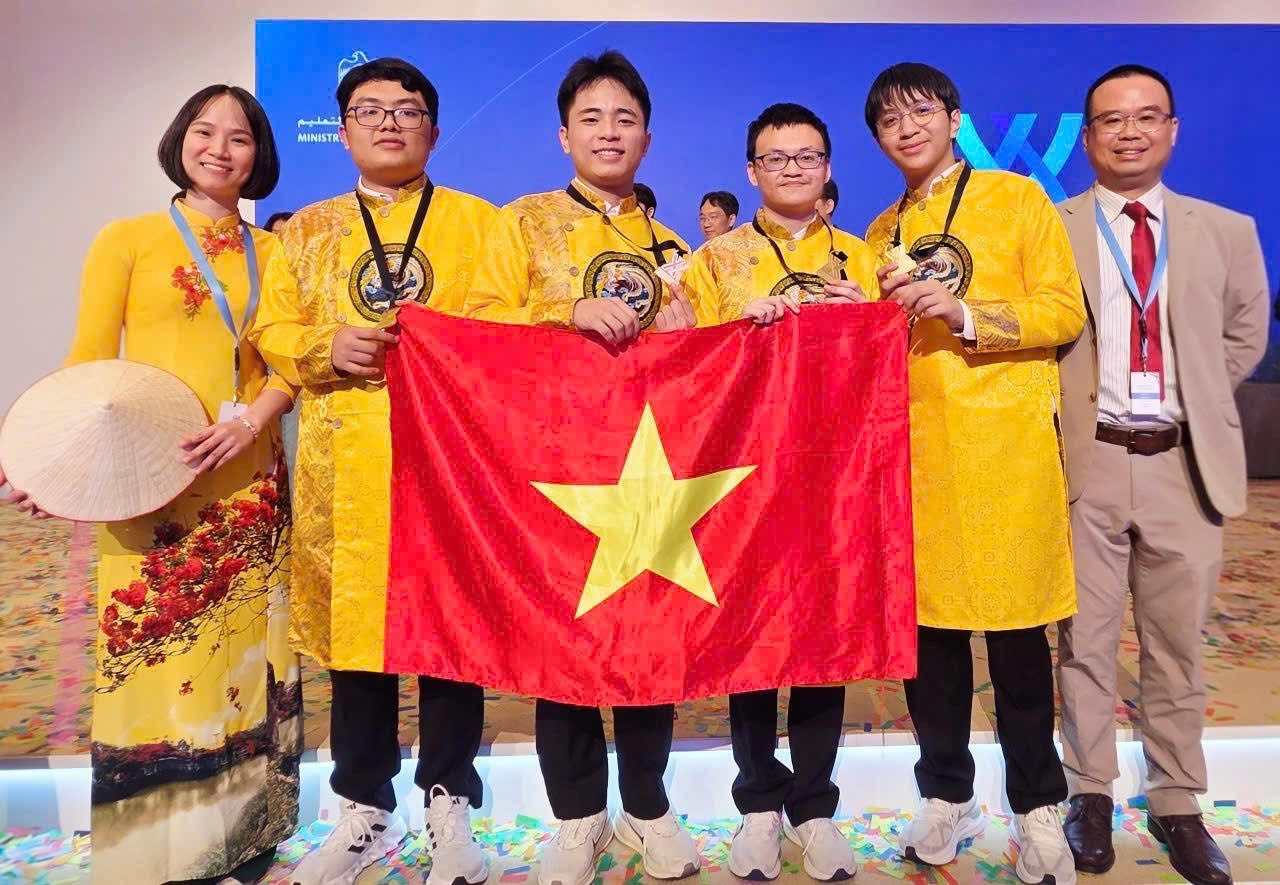 |
The Vietnamese team at IChO 2025. Photo: MOET |
The Vietnamese team at IChO 2025. Photo: MOET
Between 2020 and 2025, the Vietnamese team secured 24 out of 24 medals at the International Chemistry Olympiad, including an impressive 21 gold and three silver medals.
"This achievement affirms the quality of specialized education in high schools, alongside general education, and validates the approach to identifying, selecting, and training gifted students," the Ministry assessed.
The 2025 IChO took place from 5 to 14/7 in the UAE, attracting 354 students from 90 countries and territories. This is the 57th time the competition has been held.
The IChO consists of one theoretical and one practical exam, each lasting five hours. This year's practical exam required students to demonstrate proficiency in basic and advanced experimental skills, such as substance synthesis and analysis, amino acid identification, organic compound recognition using thin-layer chromatography, titration, and UV-Vis absorption spectroscopy measurements. According to the Ministry, this exam demanded precision, logical thinking, and proficient laboratory skills.
Meanwhile, the theoretical exam revolved around environmental issues, technology, and the application of chemistry in daily life, including seawater desalination, solar energy, tennis balls, and lanterns. It challenged students to apply comprehensive knowledge and critical thinking to solve problems.
"This year's exam structure is considered innovative and relevant to real-life situations while maintaining scientific depth," the Ministry stated.
Thanh Hang



